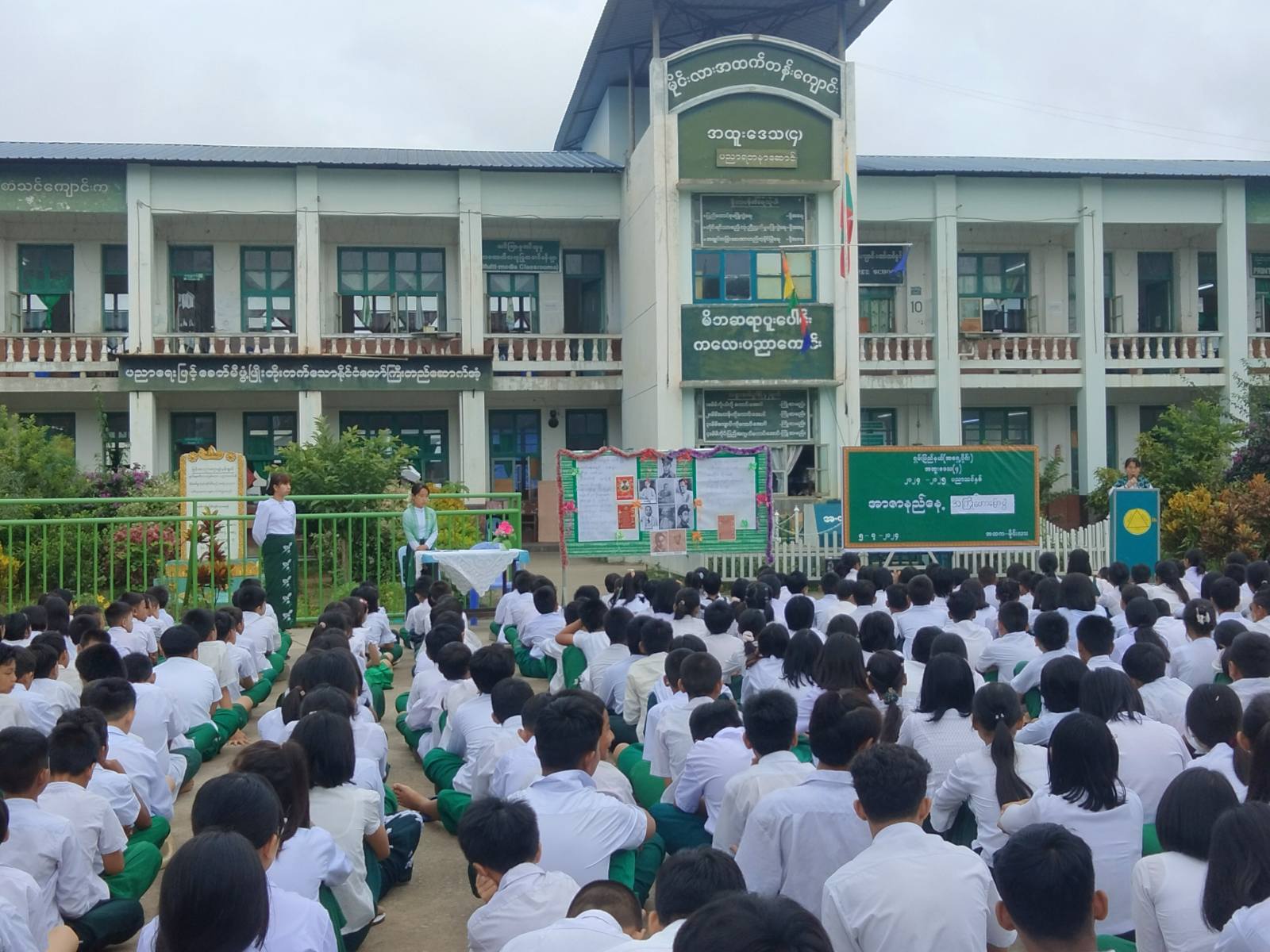CNI News
29 May 2025
Since Myanmar is a union state, it is necessary to ensure that the official language and literature prescribed by the state are mastered nationwide, said SAC Chairman Senior General Min Aung Hlaing during a meeting with a delegation from the National Democratic Alliance Army (NDAA).
The NDAA delegation led by Vice Chairman U San Pei, Vice Chairman U San Lu, and General Secretary U Kyi Myint met with the SAC Chairman for discussion at the Triangle Command in Shan State (East) On May 25, 2025.
“Since Myanmar is a union state, it is necessary to ensure that the official language and literature prescribed by the state are taught nationwide. Therefore, in the education sector, the union system of education must be taught nationwide,” said the SAC Chairman Senior General Min Aung Hlaing.
Section 450 of the 2008 Constitution stipulates that Burmese is the official language.
Since Burmese is the language and literature of the Bamar people, non-Bamar ethnic groups are demanding that their languages and literature be recognized as official languages.

While seeing a school in the Mongla region
Section 22 (a) of the 2008 Constitution stipulates that the state shall assist in the development of the language, literature, art, and culture of ethnic groups.
The NDAA wanted the SAC to help make regional transportation faster and smoother as well as education and health sectors, said U San Pei, vice chairman of the NDAA, adding that the NDAA would collaborate (with the SAC) in the peace and stability of the state.
" As the NDAA's stance, it is mainly carrying out the Our Three Main National Causes (Non-disintegration of the Union, Non-disintegration of national solidarity and Perpetuation of sovereignty) which have been laid down and practiced for over 30 years by the State." said U San Pei.
The NDAA split from the Communist Party of Burma and made peace with the Myanmar Tatmadaw on June 30, 1989.
The Myanmar Tatmadaw designated the Mongla region in Shan State (east) as Special Region-4. In the Special Region-4, the Chinese language and Chinese currency are used more than the Burmese language and the Kyat currency.
However, other ethnic groups also live in Special Region-4, including Shan, Akha, Lahu, “Wa”, Bamar, Kokang, and Chinese.




